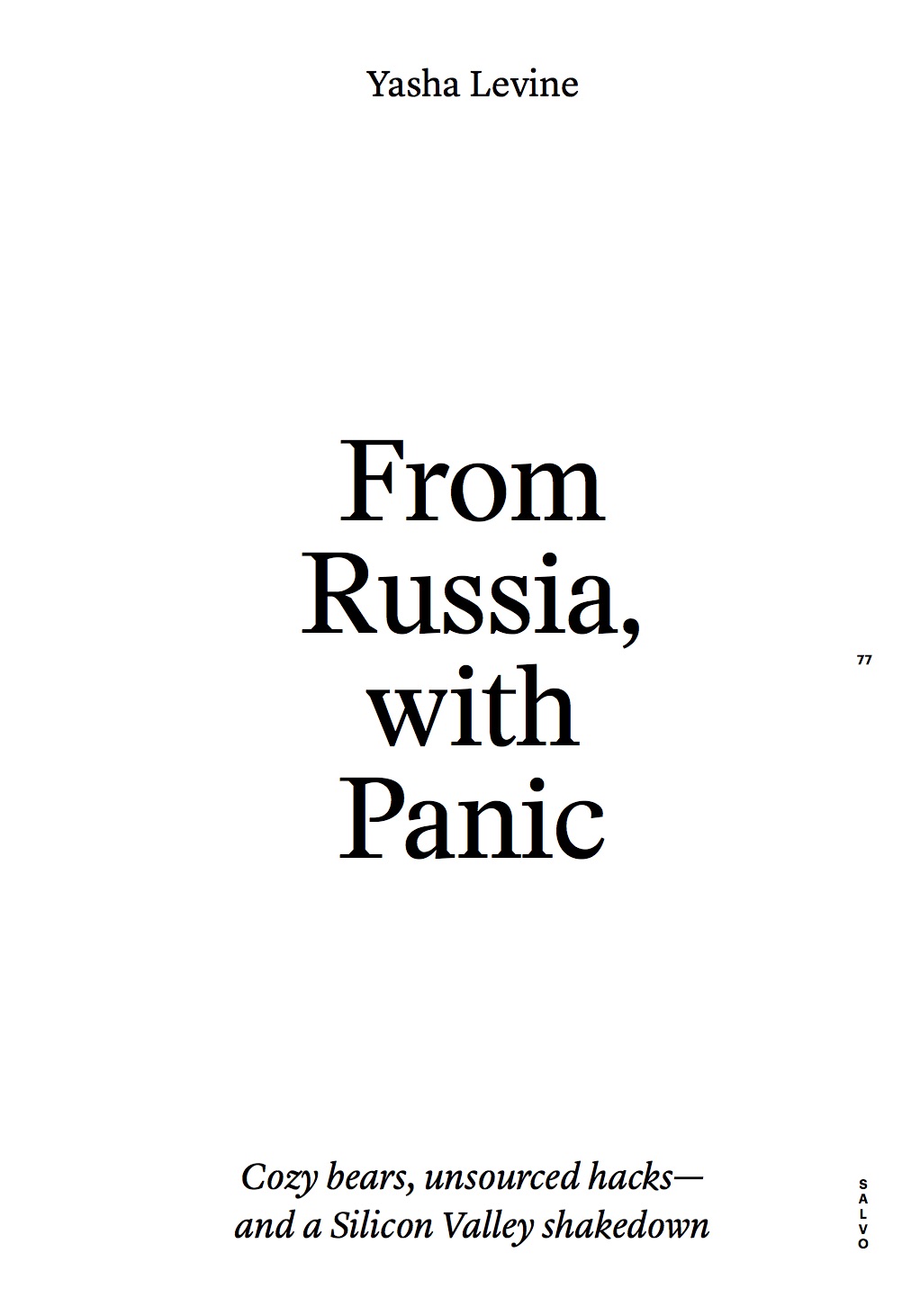Cyber Scammers: Russia, Hacking, Elections and Cyber Attribution

The Baffler just posted my long investigation into the politicized, con-infested cyber-attribution industry.
In the article — which appears in Issue #34 — I look at the thinly sourced proof behind the supposed hacking of U.S. elections by Russia, but my main intellectual contribution here is to take the long historical view, going back to the birth of the cyber-attribution industry in the aftermath of 2008 Georgia-Russia War.
Back then, I lived and worked in Moscow. I was there when America suddenly found itself at the edge of a precipice: a war over a complex sectarian conflict in a remote part of the world that few knew much about or cared to deeply understand. American policymakers wanted a simple explanation for why Russia was to blame, and conveniently, they were offered one: cyber-aggression. It’s a story about the last time American and European cyber experts accused Russia of launching an attack against another country—and nearly provoked a war with a nuclear power, despite getting all sorts of things about the conflict wrong.
The moral of the tale is that cyberwarfare is a fraught and high-stakes theater of conflict, in which the uncertain nature of cyber-attack attribution can be exploited to support any politicized version of events that one chooses.
The political forces and twisted, self-serving logic of cyber attribution I saw being used to assign blame during the Georgia-Russia War in 2008 were on full display after Donald Trump's surprise victory in 2016. That's why it's an important event to revisit — that is, if we want to understand the nature of cyberwarfare and how easily it can be manipulated to satisfy political goals.
Read the article here. From Russia, with Panic: Cozy bears, unsourced hacks—and a Silicon Valley shakedown
And don't forget to subscribe to The Baffler. Support investigative journalism!
—Yasha Levine
